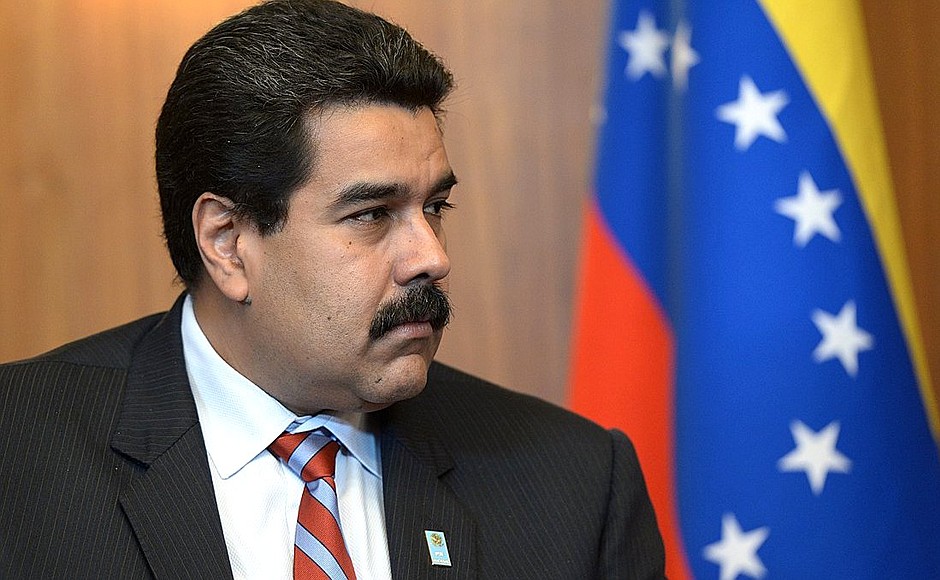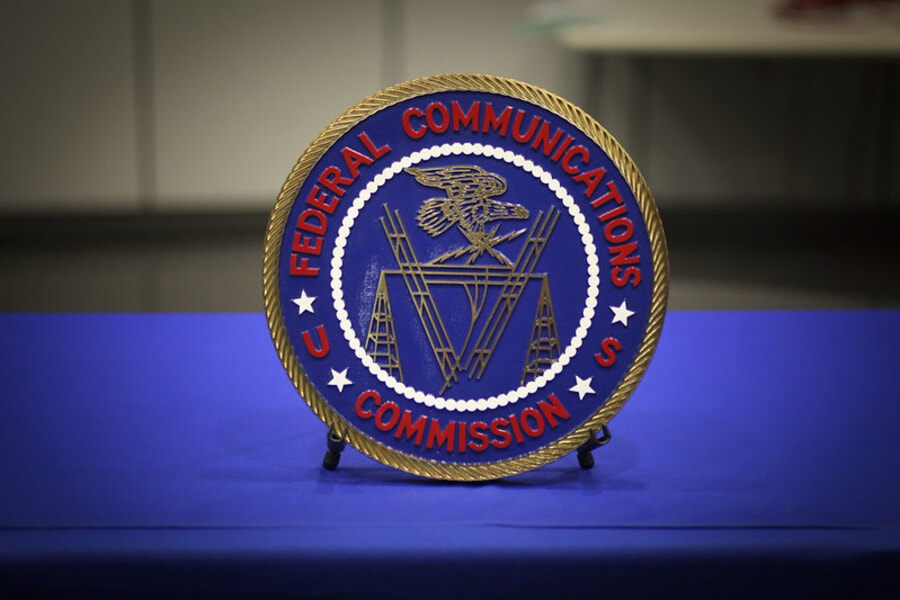Did Former Green Berets Violate the 1794 Neutrality Act by Invading Venezuela?
Whether a recent private military excursion violated U.S. law might hinge on the answers to a few important questions.

Venezuela’s de facto president, Nicolas Maduro, recently claimed that his forces detained two American citizens and former U.S. special forces soldiers who landed on the Venezuelan coast as part of an effort to initiate an insurgency against his regime. Eight other members of the 15-person team were reportedly killed. The insurgent group, made up of a combination of dissident Venezuelan military officers and former U.S. special operations personnel, apparently planned to capture Maduro and other leaders of his regime and allow Juan Guaido—who was recognized as the lawful president of Venezuela by the United States and several other countries in January 2019, but does not control any part of the country—to take power. Jordan Goudreau, a former U.S. Army special forces medic, reportedly organized the effort—code-named “Operation Gideon”—through his U.S.-based private security company Silvercorp, in coordination with Javier Nieto, a former Venezuelan National Guard captain living in the United States. Another one of the alleged early leaders, Cliver Alcala, was a retired major general in the Venezuelan armed forces and had been living in Colombia before he surrendered to U.S. authorities to face drug trafficking charges in March 2020.
Alcala and Goudreau allege that Guaido entered into a contract with them to help force Maduro from power. Guaido denies this, and the U.S. government has stated that it had nothing to do with the episode either. Members of Congress and other observers, however, have continued to ask questions about their possible involvement, noting the Trump administration’s hostile posture toward the Maduro government; its strong support for Guaido; and ties between Goudreau and the Trump campaign, which Goudreau openly advertised on the Silvercorp website. The answers to these questions are essential both for clarifying what happened in Venezuela and for determining whether Goudreau or any of his associates violated U.S. law—in particular, the 1794 Neutrality Act.
History of the Neutrality Act
In 1793, George Washington issued a proclamation regarding the war between the United Kingdom and France. His proclamation required U.S. citizens to remain neutral between those powers. He thought that the proclamation was necessary to overcome U.S. citizens’ natural sympathies toward France; he was worried that they might begin to assist France and draw the United States into the conflict. Notwithstanding the proclamation, U.S. citizens continued to arm and equip privateering vessels to harass British ships, and the government was concerned about the legality of prosecuting those citizens for violations of international law alone. As a result, Washington called on Congress to enact a statute that would clearly allow the executive to enforce U.S. neutrality through the criminal law.
The Neutrality Act criminalized several types of activities. The most relevant remains codified at 18 U.S.C. § 960 and states:
Whoever, within the United States, knowingly begins or sets on foot or provides or prepares a means for or furnishes the money for, or takes part in, any military or naval expedition or enterprise to be carried on from thence against the territory or dominion of any foreign prince or state, or of any colony, district, or people with whom the United States is at peace, shall be fined under this title or imprisoned not more than three years, or both.
In 1984, the Justice Department’s Office of Legal Counsel (OLC) produced two opinions examining the Neutrality Act: an April 1984 analysis concluding that the act does not apply to U.S. government activities and a separate September 1984 opinion providing a more general overview of the act. In discussing the purposes of the act, the former describes an underlying rationale that remains as important today as it was in 1794:
Critical to the effort to remain detached from foreign entanglements was establishing to foreign powers and to the citizens of the United States that only the Government was authorized to articulate United States foreign policy. Unauthorized acts by private individuals in this regard were not to be recognized by foreign nations, and, indeed, were to be punished by the United States, “because no citizen should be free to commit his country to war.”
Yet the latter opinion also describes various ways in which the executive branch has interpreted the act narrowly. As far back as the 1790s, U.S. authorities interpreted the act as only reaching cases in which individuals engaged in covered conduct do so at least in part from U.S. territory. This necessarily precluded its application to conduct that transpired entirely overseas, even when pursued by American citizens. Later, in the 1860s, the attorney general asserted that the act applies only when the conduct in question targets an entity recognized by the U.S. government, meaning that it does not prohibit U.S. citizens from equipping foreign governments that are suppressing insurgencies. By the 1960s, the Kennedy administration, speaking in reference to the failed Bay of Pigs invasion of Cuba, described the act’s scope as follows:
There is nothing criminal in an individual leaving the United States with the intent of joining an insurgent group. There is nothing criminal in his urging others to do so. There is nothing criminal in several persons departing at the same time. What the law does prohibit is a group organized as a military expedition from departing from the United States to take action as a military force against a nation with whom the United States is at peace.
Assuming these statements still reflect the views of the executive branch, they could have a direct bearing on the possible prosecution of Goudreau and his collaborators.
Recent Uses of Section 960
Though the statute is long in the tooth, the Justice Department has used § 960 to prosecute a handful of U.S. citizens in the past few decades. In each case that the government brought, the defendants were involved in attempted coups against foreign leaders, even though the text of the statute arguably captures a broader set of acts.
In 1981, the United States prosecuted 10 people who planned to overthrow the republic of Dominica, a small island southeast of Puerto Rico, in a plan called Operation Red Dog. The plot’s leader apparently hoped to leave the island five years later having earned millions of dollars in profits from various enterprises. The group was arrested at a marina in New Orleans before setting sail. The government seized dynamite, high-powered rifles, Nazi and Confederate flags, and a document described as a contract with the former prime minister of Dominica, Patrick John. During the trial, the prosecutors stated that the group’s leader had reached an agreement with the former prime minister to overthrow the current prime minister and restore John to office in exchange for being given “run of the island.” Two of the defendants who went to trial were found guilty, and one was acquitted. (In a memorable turn of phrase, one defense lawyer described the ringleader as a “baby mercenary.”) Seven others pleaded guilty to Neutrality Act violations.
The United States similarly indicted 11 people for conspiring to violate the Neutrality Act in planning to violently overthrow the Laotian communist government in 2007. The defendants were 10 members of California’s Hmong community, plus a former California National Guard officer from outside the community. Their plan was to hire mercenaries to bomb Laotian government buildings and shoot down military aircraft using nearly $10 million worth of weapons, including Stinger missiles. The defendants perceived the government as persecuting the Hmong as a group since the end of the Vietnam War. However, in 2010 the judge threw out large portions of the case due to what he perceived as the government’s evolving set of facts that made it hard for the defendants to prepare their defense. The government ultimately dismissed the charges.
In 2015, the Justice Department charged several U.S. citizens with conspiring to violate the Neutrality Act based on their involvement in a failed coup in Gambia that resulted in the death of three co-conspirators, two of whom were American. The defendants included a U.S. citizen of Gambian descent named Cherno Njie, who organized and funded an effort by about a dozen people to help overthrow the existing Gambian president and install Njie as the interim leader. When the FBI searched Njie’s residence in Texas, they found handwritten documents describing a vision for Gambia after the coup and a spreadsheet of weapons, many of which Njie and his co-conspirators had acquired within the United States. Ten of the attackers were Gambian nationals, seven of whom had served in the Gambia Armed Forces. Four of the individuals charged ultimately pleaded guilty to Neutrality Act and related firearms violations, while a fifth pleaded guilty to export violations for shipping U.S.-purchased firearms to Gambia.
Most recently, in September 2019, the Justice Department charged two former U.S soldiers, Alex Zwiefelhofer and Craig Lang, with homicide and armed robbery for the 2018 killing of a Florida couple, as part of an effort to fund the defendants’ efforts to fight on behalf of several overseas armed groups. In December 2019, the Justice Department added Neutrality Act charges for both, specifically alleging that they committed the robbery as part of an effort to travel to Venezuela and fight the Maduro government. Notably, however, these alleged activities took place between February and October 2018, before the United States recognized Guaido as Venezuela’s president.
The Former Green Berets in Venezuela
These cases have clear parallels to that of Jordan Goudreau and the other U.S. citizens allegedly involved in Operation Gideon. The activities Goudreau and others pursued (or attempted to pursue) in Venezuela are certainly comparable to those of other defendants who have been prosecuted under the Neutrality Act. Whether they can face the same fate, however, appears to hinge on a few key facts.
First is whether Goudreau and his team were in fact authorized to undertake the actions in question by Juan Guaido, whom the United States recognizes as Venezuela’s president. Under international law, a head of state can consent to military activities by foreign governments or individuals on the territory of his or her state. (Whether a head of state could do so under domestic law depends on the contents of that law but is not relevant for present purposes.) In the United States, recognition decisions lie entirely within the authority of the president, and any court considering a legal issue related to recognition would almost certainly defer to the president’s determination. Consequently, if Guaido invited Goudreau’s team into Venezuela, then from the U.S. perspective, the Venezuelan head of state would have consented to the team’s presence and activities there. In these circumstances, it seems unlikely that a court would view those activities as a “military or naval expedition or enterprise ... against the territory or dominion of [a] foreign ... state” as required by the Neutrality Act.
This would be consistent with the interpretation of the Neutrality Act that the attorney general adopted in 1869, which is cited in the September 1984 OLC opinion as stating:
[W]hen a nation with which we are at peace, or the recognized government thereof, undertakes to procure armed vessels for the purpose of enforcing its own recognized authority within its own dominions ... in a legal view this does not involve a design to commit hostilities against anybody.
Today, U.S. private security companies frequently provide training, support or protection to foreign governments’ militaries and other agencies. The U.S. government has encouraged these activities in certain cases and frequently provides export licenses and other authorizations necessary for these groups to pursue their work. This suggests that the United States does not view the provision of armed support to foreign leaders as prohibited by the Neutrality Act.
If, however, Guaido did not invite them in—and their activities were not otherwise authorized by Venezuelan domestic law, as appears to be the case—then Goudreau and his team may have a problem. In this case, they would appear to have taken part in a “military ... expedition or enterprise against the territory or dominion of [a] foreign [state][,]” namely Venezuela, “with which the United States is at peace[,]” consistent with a Neutrality Act violation. While the Trump administration engages in hostile rhetoric toward the Maduro regime, there are no grounds for concluding that the United States and Venezuela are not at peace. This would be true despite Goudreau’s claims that he and his team intended to target Maduro, whom the United States does not recognize. Unless pursued in national self-defense or pursuant to a U.N. Security Council resolution—neither of which applies here—military operations pursued within a foreign state without its consent and contrary to its domestic laws are generally viewed as being in violation of international law. And in the context of the Neutrality Act, they seem likely to be viewed as “against the territory or dominion” of the state whose international legal rights are being violated.
A second factual question is whether and to what extent Goudreau and his team undertook part of their scheme within the United States. The Neutrality Act requires the person being charged to have “knowingly” acted “within the United States” and the military operation they pursued to have been “carried on from thence” against a foreign state. The September 1984 OLC opinion suggests that U.S. officials have routinely interpreted this language as requiring that substantial parts of the operation in question actually take place within the United States, and that it does not cover acts of hostility committed by U.S. citizens entirely outside U.S. territory or jurisdiction. Consistent with this view, every recent Neutrality Act prosecution has involved activities that took place at least in part inside the United States, a fact the Justice Department has been careful to articulate in each case.
Based on news reports, it is not clear precisely what steps Goudreau and his compatriots took inside the United States in pursuit of their planned operation. If the group were careful to perform all of their work overseas, then the case may not include the necessary geographic nexus. If, however, federal officials are able to identify activities within the United States that link directly to the plot—such as undertaking phone calls, planning meetings or procuring relevant equipment in the United States—then the geographic elements of Section 960 appear to be met. Given that Goudreau’s company (Silvercorp) is incorporated in Florida and he and several alleged co-conspirators were U.S. residents until recently, the latter seems more likely.
A final factual question is the extent of U.S. involvement. The Trump administration has denied any knowledge of, or involvement in, Goudreau’s activities. If true, this would pose no obstacle to a possible Neutrality Act prosecution. If the president or another U.S. official did authorize Goudreau’s activity, however, then this may make a Neutrality Act prosecution impossible. The April 1984 OLC opinion discussed above makes this clear when discussing early practice under the act:
The fact that during the years immediately following the passage of the Act, expeditions into the Central and South American territories were launched by private parties, groups of individuals acting pursuant to Presidential authority, and United States troops, and that only the individuals involved in the first category of expeditions were prosecuted, supports the view that the Act was intended to apply no more to “paramilitary” troops then to the regular “armed forces” troops, when acting under orders of the President. ...
Based on this view, the OLC concluded that the Neutrality Act did not apply to covert action pursued by private individuals at the direction of U.S. intelligence agencies. If the facts fit, then the same conclusion would likely apply to Operation Gideon. And while not everyone might agree with this interpretation of the Neutrality Act, it would most likely mean that the Justice Department would not view itself as able to pursue a prosecution.
Many past administrations have recognized that it is in the U.S. government’s interest to affirm governmental control over foreign policy and over the resort to force in foreign states. The decision to outlaw private warfare, after all, lies at the heart of the Neutrality Act. It remains to be seen how the Justice Department will treat this episode, but Thomas Jefferson’s words still resonate: “No citizen should be free to commit his country to war.”






